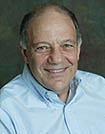PERC Executive Director Terry Anderson:
"On November 12, PERC and the environment lost a friend when Tom Graff, a lawyer with EDF, passed away. As he showed when we worked together at PERC conferences and briefings in Washington, D.C., Tom understood the importance of markets as a source of environmental quality. Together we wrote about water markets for the San Jose Mercury News.

Tom worked for decades to protect California’s rivers for multiple uses, creating ways to use conservation and water pricing to benefit both water users and the environment. He was a primary architect in the drafting and passage of the Central Valley Project Improvement Act, sponsored by Congressman George Miller and Senator Bill Bradley in 1991 and signed into law in 1992. This legislation authorized the use of water markets to encourage farmers to adopt conservation measures and sell the saved water to urban areas, thereby reducing the need for dams and river diversions. These water policy reforms were the most comprehensive ever passed by Congress.
Tom built a staff that achieved important transformations in energy policy, rewarding utilities for improving energy efficiency, not just for building new generating capacity. In 1988, he and his colleagues built support for a revolutionary new approach to cut acid rain pollution, emissions trading, which was adopted by Congress in 1990. He also guided EDF’s efforts to help pass the Pavley Clean Car law and AB 32, two of the most significant steps taken in this country to reduce global warming pollution.
Tom received numerous awards for his work, including the Jean Auer Award for his lifetime devotion to restoring the Sacramento-San Joaquin Bay-Delta, and he was honored with an endowed chair in his name at the College of Natural Resources, University of California at Berkeley.
Tom is survived by his loving wife, Sharona Barzilay; daughter Rebecca Graff (Cambridge, MA#; son Benjamin Graff #San Jose, CA#; daughter Samantha Graff, son-in-law Miguel Helft, and grandchildren Avi and Rafael Helft #Oakland, CA#; and sister Claudia Bial #Fort Lee, New Jersey# and her family.
He grew up in Syracuse, NY, where he excelled at both academics and athletics even before attending Phillips Exeter Academy. He graduated from Harvard College and Harvard Law School, where he wrote for the Harvard Law Review. He received his LL.M. from the London School of Economics and then moved to Washington to clerk for Judge Carl McGowan in the D.C. Circuit. He subsequently served as legislative assistant to New York City Mayor John Lindsay and moved to the West Coast in 1970 to work for Howard, Prim, Smith, Rice & Downs, a San Francisco law firm. He was a Lecturer at UC Berkeley School of Law (1980) and visiting professor of law at Harvard Law School (1979).
Tom served as a board member of the Oquirrh Institute; the California Foundation on the Environment and the Economy, and the National Research Council, Commission on Geosciences, Environment and Resources. He also served on the Governor’s Commission on Transportation Investment; University of California President’s Advisory Commission on Agriculture and Natural Resources; Bay Delta Advisory Council, and Colorado River Board of California.
Praise for Tom Graff
Fred Krupp, President, Environmental Defense Fund
"Tom was the thought leader of a new wave of environmentalism that uses market incentives to solve some of the most intractable environmental problems."
Senator Bill Bradley
"Without Tom Graff, whose good sense and judgment guided its path, there never would have been a major reform of California’s water law in 1992, the Central Valley Improvement Act. He was also a personal friend and a very special human being."
Senator Dianne Feinstein
"It is hard to imagine that Tom Graff will never again sit at the table at a major California water roundtable and benefit us all with his passionate advocacy. I am deeply saddened to hear the news, and my heart goes out to Tom’s family."
Senator Barbara Boxer
"Tom was a true pioneer and advocate for a healthy and sustainable environment, working tirelessly to provide new approaches for managing natural resources. His efforts will continue to shape California’s water policies for generations to come."
Congressman George Miller
"On the Central Valley Improvement Act, no person was more important than Tom Graff. It wasn’t just his knowledge of water. It was his knowledge about the stewardship of the environment and what this state had to consider if it really thought about its future."
Governor Arnold Schwarzenegger
"For over 30 years, Tom served as a dedicated and respected environmentalist. He spent his career working to raise environmental awareness and protection for the benefit of generations to come. Throughout California’s water crisis, Tom fought for conservation, market transfers, water for fish and other important issues that became a crucial part of the historic water package recently passed by the legislature."
San Francisco Mayor Gavin Newsom
"Tom Graff was the architect of the best aspects of California water policy. I hope that his vision on water policy becomes reality as part of his legacy."
Noteworthy achievements
- Mid 1970s: He litigated California Public Utilities Commission rate cases that established key precedents and led major California electric utilities to abandon construction of large central station coal and nuclear plants in the early 1980s.
- 1983-90: Following publication of Trading Conservation Investments for Water, Tom helped steer the first major long-term voluntary water marketing deal with Imperial Irrigation District.
- Late 80s- early 90s: He helped craft the proposal to use water markets and public subsidies to help resolve the Mono Lake controversy.
- 1993-96: Tom and his colleagues played a role in the development of the Bay Delta Accord of 1994, the passage of Proposition 214 in 1996, and Congressional passage of the Bay Delta Security Act, also in 1996. Together these set the framework for the
development and funding of California water policy in the late 1990s and beyond.



